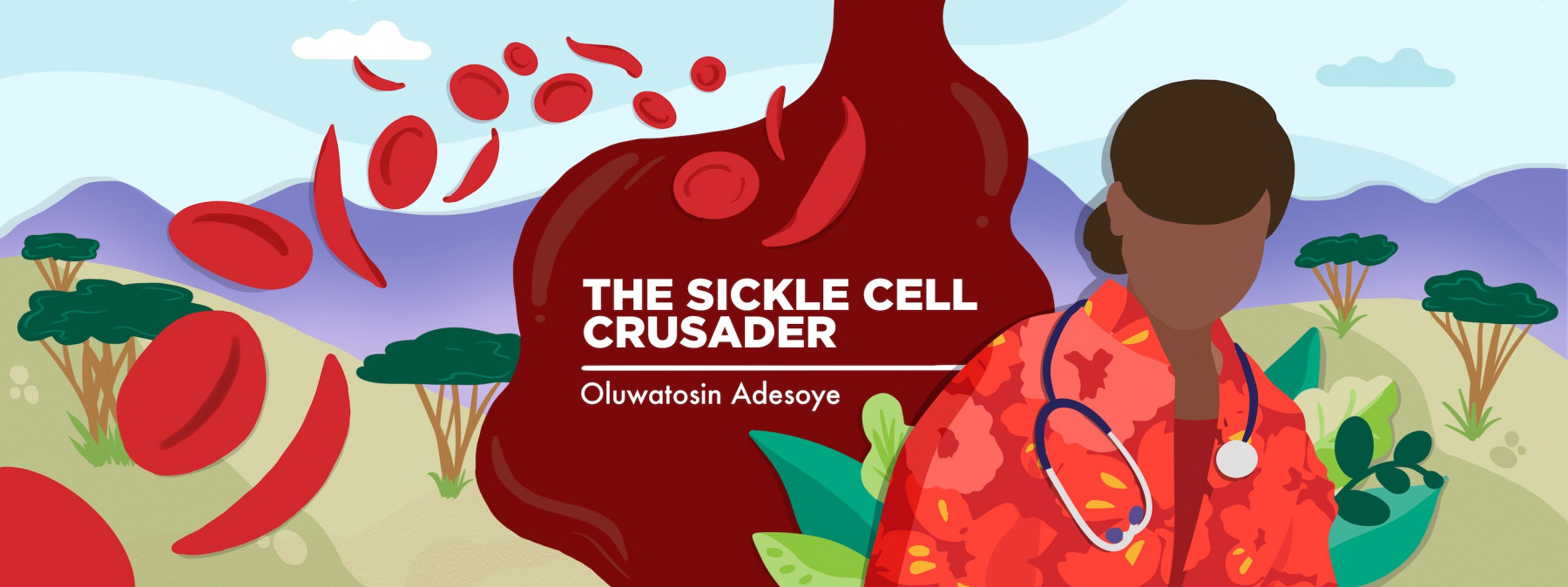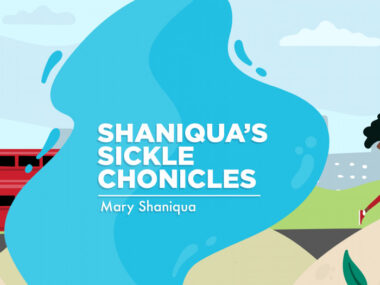This Sickle Cell Awareness Month, I’m reflecting on why I advocate
My reasons for promoting better understanding of sickle cell disease
Written by |

As a health professional and sickle cell patient, I’m constantly driven to create awareness about the disease. My motivation transcends professional duty; it’s a personal quest to make a difference. September may be National Sickle Cell Awareness Month, but for me, every month is an opportunity to educate and advocate for those affected by the condition.
Having lived with sickle cell disease for nearly four decades, I’ve experienced firsthand its complexities and complications. I have fallen and risen, survived several health battles, and lost friends, strangers, and patients to this disease. I fight to live every day. These personal trials and triumphs fuel my passion for continuous sickle cell advocacy and awareness.
My reasons for raising awareness
My primary objective in creating awareness is to educate a wide range of audiences about sickle cell disease, including its inheritance patterns, symptoms, and manifestations, as well as strategies for managing complications and improving quality of life.
I target my educational efforts toward patients, caregivers, healthcare professionals, policymakers, employers, and the general public to promote a deeper understanding of the disease. By empowering these groups with knowledge, I aim to enhance their ability to make informed decisions, provide support, and advocate for those affected by sickle cell disease.
The second and perhaps most crucial reason for my advocacy is sickle cell disease prevention. I am dedicated to raising awareness to reduce the incidence of the disease globally.
Despite its prevalence and virulence, it is preventable. Sickle cell is an inherited disease, so understanding one’s genotype and taking genotype compatibility seriously before having kids is the most effective and cost-efficient method of preventing the birth of children with this disease.
When partners’ genotypes are incompatible, other preventive strategies include choosing not to have children or adopting instead of having biological children. Another option is preimplantation genetic testing if the couple decides to pursue pregnancy through in vitro fertilization.
Furthermore, I am dedicated to creating awareness to champion the needs and rights of people living with sickle cell disease. Through advocacy, I push for policy reforms, improved health insurance coverage, and to ensure patients receive the support they need. Patients are always the best advocates for their own rights, but many have been silenced due to endless stigma and discrimination.
There is a significant amount of misinformation surrounding the disease, which can lead to healthcare discrimination, workplace bias, school discrimination, and general social ostracism. Because of that, dispelling myths, eliminating stigma and discrimination, and creating more inclusivity are other essential reasons I create awareness.
Another significant reason is to accelerate research on sickle cell disease. This condition is grossly underfunded and understudied. The lack of adequate knowledge about it, even among health professionals, has hindered the discovery of effective solutions for its complications and a universal cure. By shining a light on this neglected area, I hope to spur increased investment in research and help find an accessible and affordable cure for everyone with sickle cell.
Sickle cell is an expensive condition to manage, and the majority of people living with the disease are in sub-Saharan Africa, a region with low socioeconomic status. Another vital reason for my advocacy is to mobilize support for and empower these patients and their families. Many warriors deal with numerous complications that take a significant toll on them physically and mentally. These individuals deserve access to comprehensive resources, financial assistance, and emotional support.
Over the years, I have employed a multifaceted approach to promoting sickle cell awareness, targeting every member of the public. I have achieved this through in-person education, outreach, clinical meetings, campaigns, online columns, webinars, and social media. Additionally, I established a support group, Sickle Cell Celebs, and founded the Sicklelive Foundation to cater to the needs of sickle cell patients globally.
As we observe Sickle Cell Awareness Month, I urge everyone to join me in amplifying awareness and advocacy efforts. Together, we can bridge the knowledge gap surrounding sickle cell disease, eliminate stigma and discrimination, boost research and support, and ultimately enhance patients’ quality of life. Let’s work together to make every month a month of awareness for sickle cell disease.
Note: Sickle Cell Disease News is strictly a news and information website about the disease. It does not provide medical advice, diagnosis, or treatment. This content is not intended to be a substitute for professional medical advice, diagnosis, or treatment. Always seek the advice of your physician or other qualified health provider with any questions you may have regarding a medical condition. Never disregard professional medical advice or delay in seeking it because of something you have read on this website. The opinions expressed in this column are not those of Sickle Cell Disease News or its parent company, Bionews, and are intended to spark discussion about issues pertaining to sickle cell disease.






Leave a comment
Fill in the required fields to post. Your email address will not be published.